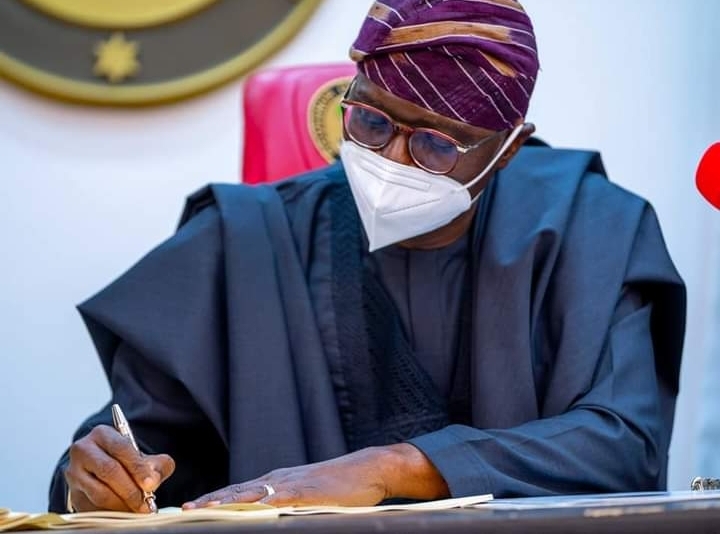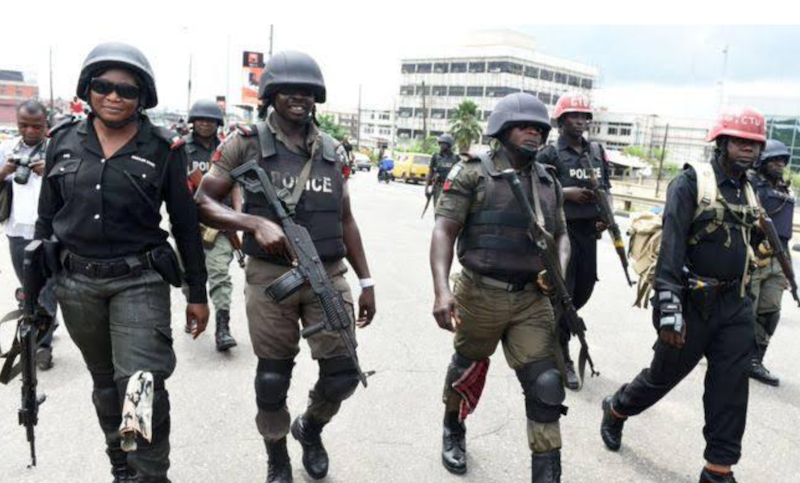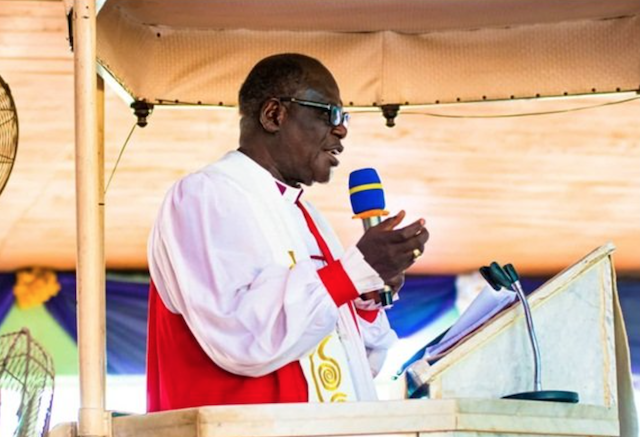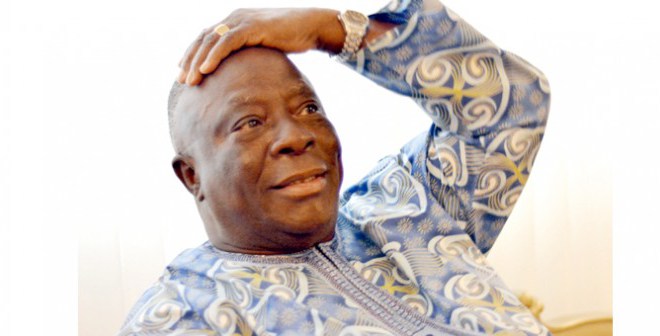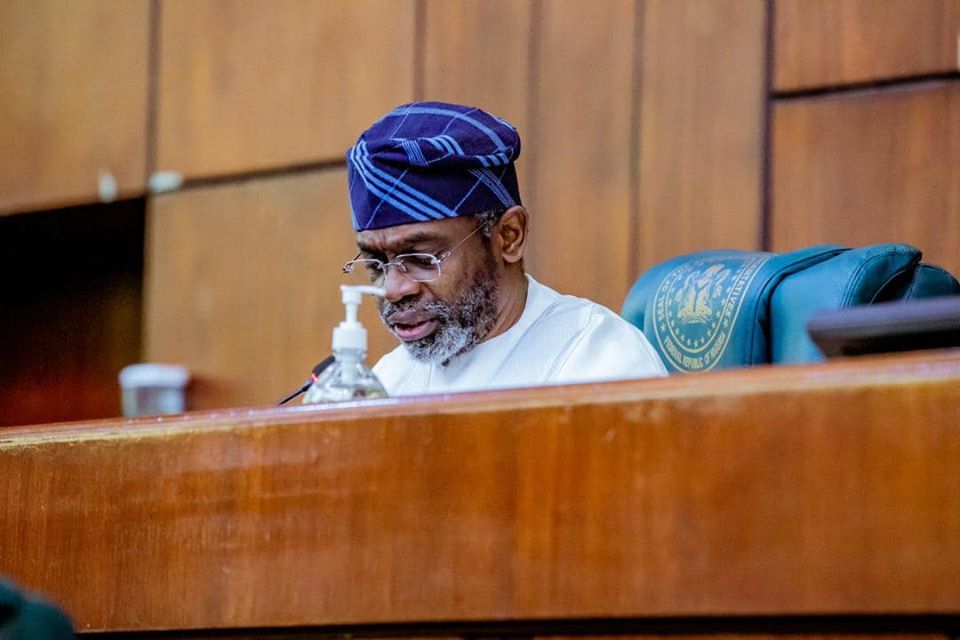A sacrosanct responsibility of the government of any country, be it a democracy or an autocracy, is the protection of life and property. In apparent recognition of this irreducible fact, President Bola Tinubu recently decided upon the creation of “State Police” as a solution to Nigeria’s mounting insecurity problem. Rising from a one-day meeting attended by the country’s 36 State governors and other high-level stakeholders, on February 15, 2024, the president announced through a spokesman that he had begun the groundwork for the establishment of “State Police” in the country. In other words, the Federal government had commenced the constitutional process for empowering all 36 State governments to operate a State Police Force (SPF) that would coexist with the Federal government’s Nigerian Police Force (NPF).
Relatedly, on February 20, 2024, the Nigerian mainstream media was agog with the news that the bill for the establishment of the SPF had passed the Second Reading at the country’s lower legislative chamber, the House of Representatives, thus setting the stage for the amendment of the relevant sections of the 1999 Constitution that would enable the transfer of the functions of police from the “Exclusive” to the “Concurrent” legislative list. With President Tinubu’s staunch support, there is every likelihood that the requisite constitutional amendment will seamlessly scale the legislative hurdles of the National Assembly and the 36 State Houses of Assembly.
Indeed, the insecurity plaguing Africa’s most populous country, Nigeria, is troubling, especially as the security agencies have failed to rise to the challenge. In the North-Eastern parts of the country, Boko Haram and ISWAP militants continue to unleash murderous terrorism upon the helpless inhabitants. In the North-West, a hydra-headed banditry rooted in ethno-religious squabbles and socio-economic desperation has become the scourge of the people. Down in the Middle Belt, mass-killings fueled by ethnic Fulani nomadism continue to plague the hapless sedentary farmers of the region. Across the South-East rages a form of multi-faceted criminality fueled by the separatist agitations of the Indigenous People of Biafra (IPOB) and its paramilitary Eastern Security Network (ESN). The South-West sees blood-money ritualists and sundry criminal elements posing existential threat to law-abiding citizens. Down in the South-South, a myriad of criminal elements masquerade as resource-control agitators, while quickly metamorphosing into party thugs and goon squads at the behest of political godfathers.
Suffice to say that the above-highlighted multi-dimensional insecurity situation in Nigeria is being exacerbated by the country’s prevailing harsh socio-economic conditions, which have seen the masses groan loudly in the pains of hunger, hardship, and disappointment. Hence, the Federal government’s attempt to tackle the insecurity situation through the introduction of SPF seems laudable. But, as the popular saying goes, a drowning man would unhesitatingly cling to a monstrous serpent. In this wise, the government’s bid to quell the country’s raging insecurity through the establishment of SPF is akin to the desperation of “a drowning man,” irrespective of the groundswell of support.
Viewed from a realpolitik perspective, SPF in Nigeria portends a monstrosity that would only serve to protract the country’s insecurity challenge. Simply put, a viable solution to that challenge lies not in the massive deployment of police operatives wielding AK-47 rifles menacingly in every nook and cranny of the 36 States of the Federation. Otherwise, the proposed SPF would turn out to be another version of the infamous Mobile Police (MOPOL) that had notoriously acquired the sobriquet of “Kill-and-Go,” due to the trigger-happy tendencies of its operatives. Or it would turn out to be a reinvention of the dreaded Special Anti-Robbery Squad (SARS) that had literally turned itself into “a group of armed robbers in uniform” before a national protest occasioned its disbandment in October 2020.
State Police proponents vociferously maintain that Nigeria being a federation, the police function should be shared concurrently between the federal and state governments, contrary to the present practice of federal exclusivity. And in this light, they are quick to reference the US where the federal, state, and local authorities jointly share that responsibly. But conveniently, they often fail to mention that US citizens are constitutionally empowered to bear arms as contained in the “2nd Amendment.” Hence, unlike Nigeria, the proliferation of arms in the US society is virtually a non-issue, whereas the argument about SPF revolves around the proliferation of arms and the escalation of violent crimes in the society.
As argued by opponents of SPF, Nigeria’s insecurity situation no longer requires the gung-ho tactics of police and military patrol teams, who impudently harass and brutalize innocent citizens, especially commercial vehicle commuters. Instead, the situation demands the deployment of an assortment of well-trained security operatives and intelligence agents equipped with sophisticated instruments, including surveillance cameras, listening devices, night vision goggles, etc. Security analyses have shown that a greater percentage of the terrorism and banditry occurring in the country is not being perpetrated by urban-based elements, but by those whose havens are dense forests, swamplands, and remote rural farmlands. Hence the deployment of amoured fighting vehicles, drones, helicopter gunships, fighters and bombers, is an imperative in the campaign against the terrorists and bandits.
Unfortunately, this line of argument doesn’t seem to resonate with the advocates of SPF, who stridently maintain that the failure of the security agencies, especially the SPF, to rise to the country’s security challenge is due to the following factors, among others: the inability of the security personnel deployed outside their States of origin to understand their operational environment, especially the local language, since Nigeria comprises about 360 ethnic groups and 625 linguistic ones; shortage of personnel and inadequate facilities due to lack of funds. Cynically, some even maintain that the NPF, as presently constituted, is a tool for actualizing the hegemonic designs of a particular section of the country.
There is no gainsaying the fact that the issues underlying the non-performance of the NPF are even more likely to occur under the SPF dispensation, as most of the concerned 36 States are microcosms of Nigeria, especially in terms of ethno-linguistic configuration. Presently, a lot of State governments find it difficult to provide their people with basic infrastructural facilities like schools, hospitals, pipe-borne water, good roads, etc. Undoubtedly, they would also be unable to fund an effective police force, which requires sophisticated equipment and weapons such as riot gears, gas shields, water cannons, handguns, assault rifles, machine guns, armoured personnel carriers, motorcycles, speed cars, speed boats, drones, helicopters and light aircraft, as well as sophisticated communication devices.
Well-known is the fact that most State government employees, especially those of the teaching profession, often endure the non-payment of their salaries for several consecutive months, thus occasioning the ironical joke that, “Teachers’ reward is in heaven.” Well, it must be made abundantly clear that the proposed SPF operatives would certainly not want their reward in heaven, but here on earth. And in the event of a delay in the payment of their salaries, they are more likely to resort to acts of extortion and violent criminality. For, a hungry man is an angry man, and an angry armed man is a very dangerous man.
There is palpable apprehension that the SPF could metamorphose into a tool of political victimization in the hands of State governors. Tales abound concerning several past and present State governors who had sought to deploy the NPF command in their States against their political opponents, even as they do not have total control over the police command, due to the matrix reporting system that makes a State Police Commissioner accountable to the Inspector General of Police, while also being answerable to the Governor of his State of assignment. But with State governors firmly in control of SPF, there is a high probability that they would use them to intimidate and subjugate their political opponents.
For instance, in 2014, Governor Adams Oshiomhole of Edo State, with the aid of the NPF command in his State, violently disrupted the activities of the State House of Assembly by dismantling the roof of the Assembly building as he sought to forestall the members’ impeachment threat against him. In December 2023, Governor Siminalayi Fubara of Rivers State borrowed a leaf from Oshiomhole by demolishing the entire Rivers State House of Assembly complex as members of the House sought to impeach him. Back in October 2022, Governor Bello Matawalle of Zamfara State shut down five media houses in the State for committing the “offence” of covering the political campaign rally of a rival party opponent. In a nutshell, the name of the acts of impunity committed by past and present State governors is “Legion,” because they are too numerous to catalogue.
A vocal ex-Senator from Kaduna State, Shehu Sani, aptly captures the political scenario that would emerge under the SPF dispensation: “The State Police will simply be an armed wing of the ruling party in each state … It’s a recipe for anarchy.” To say the least, the ex-Senator’s statement borders on the prophetic. For, when the establishment of the proposed SPF eventually gets the constitutional go-ahead, the recruits would certainly comprise acolytes and sycophants as well thugs and goons sponsored by top officials and henchmen of the ruling party in each state. Hence, the force will inadvertently owe its allegiance to the ruling party, which will end up deploying it against the opposition in its bid to perpetuate itself in power.
Since those who make peaceful change impossible ultimately make violent change inevitable, the attempt by the ruling party of a State to use the SPF to perpetuate itself in power is bound to be violently resisted by the opposition, especially when that opposition belongs to the national ruling party. Under this scenario, the resultant chaos and anarchy would pose an unimaginable threat to the country’s socio-political stability. Here lies the main trouble to come in the event of the introduction of SPF in Nigeria.
But “a stitch in time saves nine.” Therefore, the fears being entertained by opponents of SPF in Nigeria must not be swept aside. Otherwise, its creation would occasion an avoidable anarchical situation that would pose an existential threat to the country. For now, one can only hope and pray against this nightmarish scenario.
Dennis Onakinor writes from Lagos – Nigeria, and can be reached via e-mail at dennisonakinor@yahoo.com
